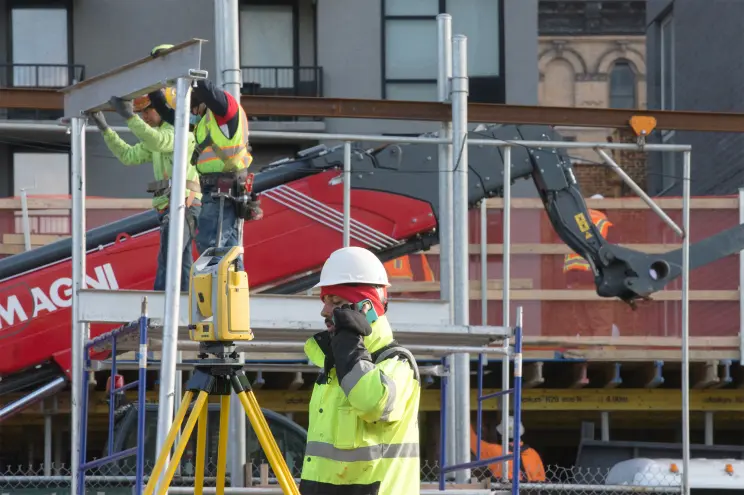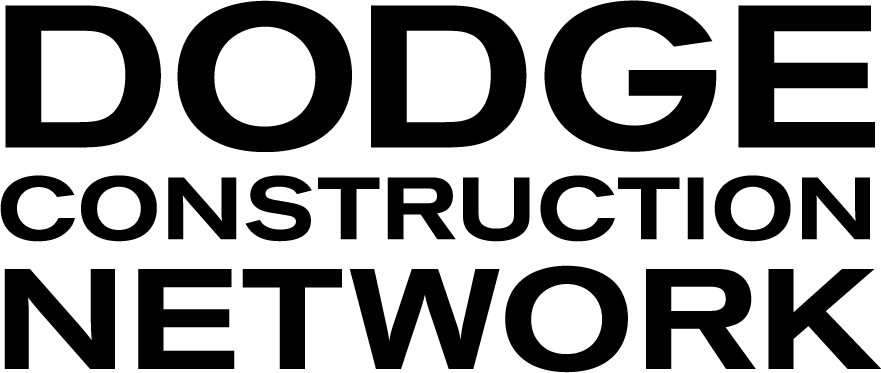Thousands of affordable apartments in limbo as ‘essential’ construction shuts down

Construction workers at a site in Manhattan earlier this month.
William Farrington
The construction of thousands of below-market-rate apartments in New York City has been put on ice over coronavirus — even though the developers are allowed to continue building amid the outbreak, The Post has learned.
While construction on buildings with affordable housing has been deemed “essential” work that may continue under Gov. Andrew Cuomo’s ongoing PAUSE order, developers have opted to halt 28 such projects citywide, according to the city’s Department of Housing Preservation and Development.
“I felt that in this environment it was better to err on the side of caution,” L+M Development Partners CEO Ron Moelis told The Post of his decision two weeks ago to halt his company’s seven current construction projects set to yield more than 1,600 rent-regulated units.
“Even though there are ways to keep these sites safe, I erred on the side of not putting [workers] at greater health risk, especially as we’re in the peak of this. We’re operating in an unknown environment. We’re trying to do the right thing,” he said of L+M, one of the city’s major affordable-housing developers.
Two of the company’s projects set to house low-income and formerly homeless New Yorkers in East Harlem and East New York were nearing completion before the-pandemic hit New York but will now be delayed, said Moelis, adding it’s tough to balance worker safety with the city’s deep need for low-income housing.
“I don’t know that there’s a right answer in this situation,” he said.
The 100-unit Linwood Apartments in East New York will house 30 formerly homeless New Yorkers as well as 70 low-income households, while the East Harlem site will soon have 400 rental apartments for people making at-or-below the New York Metropolitan Area’s median income.
He also said it’s unlikely that he’d opt to start L+M’s projects back up in short order.
“The earliest I could see is the end of the month, and that’s optimistic,” he said.
The construction halt comes after Gov. Cuomo on March 27 put a temporary stop to the building of market-rate housing, as well as hotels, while deeming emergency repairs, some infrastructure projects, and housing developments with at least 20 percent of the building dedicated to affordable housing “essential.”
Still, developers are not required to keep building “essential” projects, officials said.
“The need for affordable housing is critical, and that need will be even greater on the other side of this pandemic,” said city housing department spokesman Jeremy House. “Developers of essential affordable housing are allowed to continue construction if they choose, but only if they can ensure the safety of construction workers and the public.”
Among the other developers that have chosen to temporarily stop construction are Greenland Forrest City Partners, which is building Pacific Park in Brooklyn, and TF Cornerstone, the developer of Hunter’s Point South, spokespeople confirmed.
The controversial Pacific Park project is expected to yield 2,250 total below-market-rate apartments over the next five years. TF Cornerstone’s Long Island City waterfront project will have more than 700 such homes once it’s completed.
Councilman Brad Lander, who was among the leading voices calling on the state to shut down “non-essential” construction, said building low-cost rental apartments will be particularly important in the coming months as the city grapples with an economic downturn.
“We need to bring more affordable housing units online quickly,” he said. “I think that should be a high priority.”
He added that while ideally every planned low-cost apartment will be completed soon, “you’ve got to be safe.”
The majority of affordable-housing developments where ground broke on the construction sites before the coronavirus pandemic have continued on. As of April 3, there were 327 “essential” residential projects still being worked on, non-profit news site The City reported.
Moses Gates, a housing guru at the Regional Plan Association think tank, said that the ramifications of halting housing construction are minimal — as long as the break doesn’t last more than a few months.
“Pausing construction for a month or two is not going to hugely affect the construction timelines and viability of the developments,” he said. “There are some issues you need to work out with the contractor, the financing, and the city, but nothing that should be that difficult to overcome.”
“But if you have to pause a construction site for a year, it starts to become more difficult to restart afterwards.”
